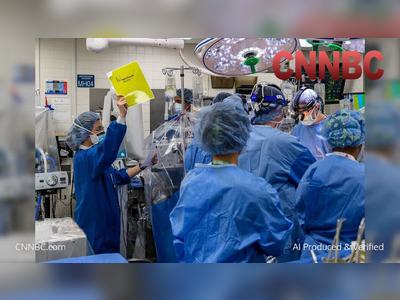US Tightens Export Restrictions on Chinese Chip Industry
New measures target China's advanced semiconductor capabilities amid global tech rivalry.
On Monday, the United States imposed new export restrictions aimed at curbing China's ability to produce advanced semiconductors.
The move, swiftly condemned by Beijing, marks an escalation in technological competition between the two largest global economies.
These measures seek to prevent China from creating chips potentially used in advanced weapons and artificial intelligence.
The restrictions come as President-elect Donald Trump prepares to return to office, likely maintaining a tough stance on China.
National Security Advisor Jake Sullivan emphasized protecting national security technologies, while Commerce Secretary Gina Raimondo highlighted efforts to address China's military modernization.
The new rules affect exports to 140 companies, including Chinese firms Piotech, SiCarrier Technology, and Naura Technology Group, along with entities in Japan, South Korea, and Singapore.
Restrictions now apply to various chipmaking equipment and software, aiming to inhibit China's advanced AI and military capabilities.
This aligns with Washington's 'small yard, high fence' strategy, despite Chinese President Xi Jinping's recent opposition.
Calls to secure the semiconductor supply chain have intensified as AI's potential is increasingly recognized.
The move, swiftly condemned by Beijing, marks an escalation in technological competition between the two largest global economies.
These measures seek to prevent China from creating chips potentially used in advanced weapons and artificial intelligence.
The restrictions come as President-elect Donald Trump prepares to return to office, likely maintaining a tough stance on China.
National Security Advisor Jake Sullivan emphasized protecting national security technologies, while Commerce Secretary Gina Raimondo highlighted efforts to address China's military modernization.
The new rules affect exports to 140 companies, including Chinese firms Piotech, SiCarrier Technology, and Naura Technology Group, along with entities in Japan, South Korea, and Singapore.
Restrictions now apply to various chipmaking equipment and software, aiming to inhibit China's advanced AI and military capabilities.
This aligns with Washington's 'small yard, high fence' strategy, despite Chinese President Xi Jinping's recent opposition.
Calls to secure the semiconductor supply chain have intensified as AI's potential is increasingly recognized.












